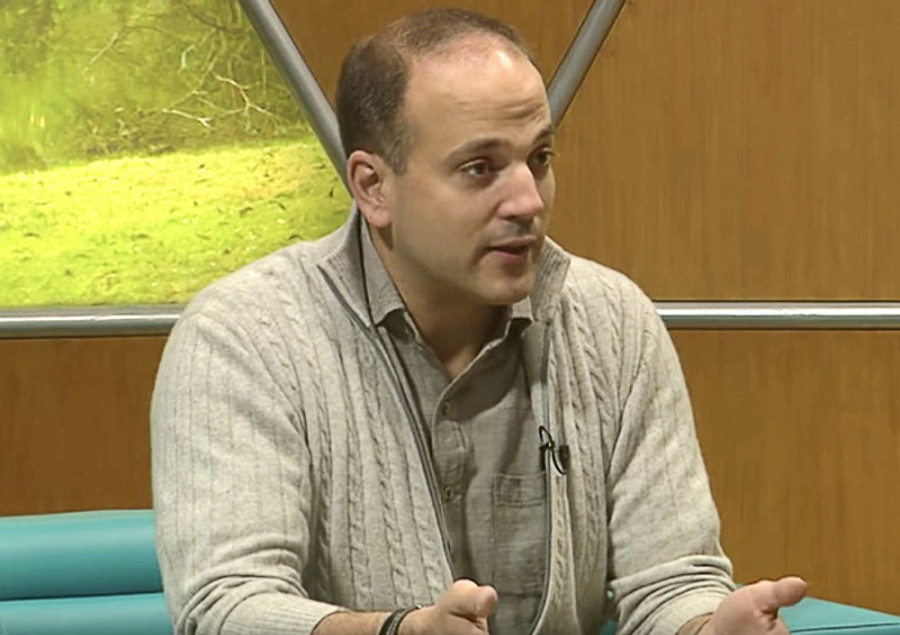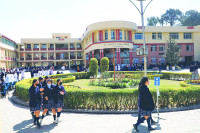Investigations
Kobold’s deadline to bring fire trucks has expired but Nepal Tourism Board says it has yet to decide on a legal response
There was no official agreement to receive fire trucks because official policy prohibits accepting second-hand vehicle as donations, says Disaster Management Department
Tsering D Gurung
After threatening to sue German watchmaker Michael Kobold for breach of contract if he failed to deliver fire trucks to Nepal by March, the Nepal Tourism Board now says it has yet to decide on a legal recourse.
“We had a preliminary discussion with our lawyer but have not proceeded further,” the board’s CEO, Deepak Raj Joshi, told the Post via email, after multiple attempts to reach him for an update. “I and most of the officials at NTB were highly engaged for other important programmes of Nepal Tourism Board and Visit Nepal 2020 campaign. So we could not concentrate on this particular project.”
The tourism board had signed a memorandum of understanding (MoU) with Kobold to pay $200,000 for his project the ‘Nepal Fire Truck Expedition’ in 2017. As per the agreement, Kobold had pledged to bring up to 10 fire trucks, driven by international celebrities, and hand them over to Kathmandu Metropolitan City. The board had paid Kobold $100,000 as an advance.
After the Post published a series of stories about Kobold last December, detailing a string of fraud, lies and outstanding payments to Nepali entrepreneurs across the country, including signing the agreement with the tourism board on behalf of a non-existent company, Joshi had told the Post that the board would consider taking legal action against Kobold.
Back in January, Joshi told the Post that the board had already notified Kobold about the possibility of terminating the contract if he fails to organise the expedition by March this year.
“We cannot afford any more delays,” he had said.
As Nepal Tourism Board mulls over taking legal action against Kobold, the watchmaker, who declined to be interviewed for this story, wrote this in a recent Facebook post:
“Lawsuits are complicated matters and our agreement with NTB is open-ended in terms of time, which means no amount of delays to the fire truck expedition are legally considered reasons for filing a suit.”
In response to the stories, Kobold has accused the Post of being corrupt and has assured his followers that the expedition—which was announced in 2015 and continues to be delayed—would take place as planned.
On November 28 last year, Kobold had announced that the first of five trucks would be shipped to Nepal in December, and thanked the Danish shipping line Maersk for their support on his social media. Then, on a post dated December 11, he again wrote that “plans are underway to get the vehicles rigged on a flat rack/open containers and moved onto a vessel that will sail from Baltimore to Singapore and into Calcutta later this month”, even thanking the Government of Nepal and Nepal Tourism Board for their support.
But in a recent Facebook post, Kobold contradicted his earlier claims and said that the expedition is in limbo because the Kathmandu Metropolitan City refused to accept the fire trucks back in November 2018, around the same time when the trucks were purportedly being readied for shipment.
“We are not prepared to ship the fire trucks to Nepal until a new receiving agency can be identified,” Kobold wrote on Facebook. “We cannot proceed with the identification of an alternative receiving agency until the NTB amends the MoU accordingly.”
In an interview with the Post, Archana Shrestha, head of the Department of Disaster Management, said that her department never had an “official” agreement with Kobold.
“He came to us and kept insisting that we accept the fire trucks,” said Shrestha, who joined the department nearly a year ago. “When I checked with my supervisor, I was told that we couldn’t go forward with this project as the vehicles were second hand and I was informed that this was against official policy.”
Under Nepali law, it’s illegal to import second-hand vehicles for public use. According to the Department of Customs, the ban applies to import of used fire trucks, too.
Shrestha told the Post that the city has plans to buy three new fire trucks in the coming fiscal year. “We recognise that there is a need for more fire trucks in the city,” said Shrestha. “So we will be setting aside a budget for three new trucks this year and hope to increase our fleet in the coming years.”
Fire safety has long been a neglected issue in Nepal, former chief of Kathmandu Fire Brigade, Kishor Bhattarai, told the Post.
“We don’t have the required equipment, and firefighters lack basic training,” said Bhattarai. “We need real fire trucks that are fully equipped and do not function as only transport vehicles.”
Kathmandu Valley currently has eight fire engines, but only half of them are said to be fully functional. Kathmandu city which has a population of 1.7 million is served by four engines. To say that the fire department is under-equipped is an understatement.
The situation provided a person like Kobold the perfect platform to raise funds for a seemingly charitable initiative.
The Fire Truck Expedition, according to Kobold’s official website, was an idea conceived by him and his friend, the late actor James Gandolfini. But in 2013, after Gandolfini passed away, Kobold began marketing the project as a tourism campaign for Nepal, soliciting money through crowdfunding campaigns and grant proposals.
Besides the tourism board, Kobold also received a total of Rs2.5 million for the project from Waling Municipality Office and Biratnagar Metropolitan City Office, promising a fire truck and tourism promotion in return to both. While initially cloaking the project as a charity, the fire truck expedition, Kobold recently admitted, was always a “commercial venture”.
While he has repeatedly denied a request for an interview with the Post, Kobold continues to defend his project aggressively on social media, blaming everyone from Nepali government officials to the Indian government.
“India’s government wasn’t happy when I used my political connections in America to try to convince the Indians that the blockade is a bad idea,” he wrote in another Facebook post. “Since then, the Indian embassy in Kathmandu is trying to sabotage the expedition.”
Multiple attempts to reach the Indian Embassy for comment via phone call and text message went unanswered.
In the same Facebook post, Kobold goes on to say that the embassy “used an interlocutor to orchestrate the smear campaign and to instruct Deepak’s bosses at NTB to not support the expedition.”
“We have never played any role to delay the project,” Joshi told the Post. “His accusation is totally false if he has signaled it towards NTB.”




 18.37°C Kathmandu
18.37°C Kathmandu










